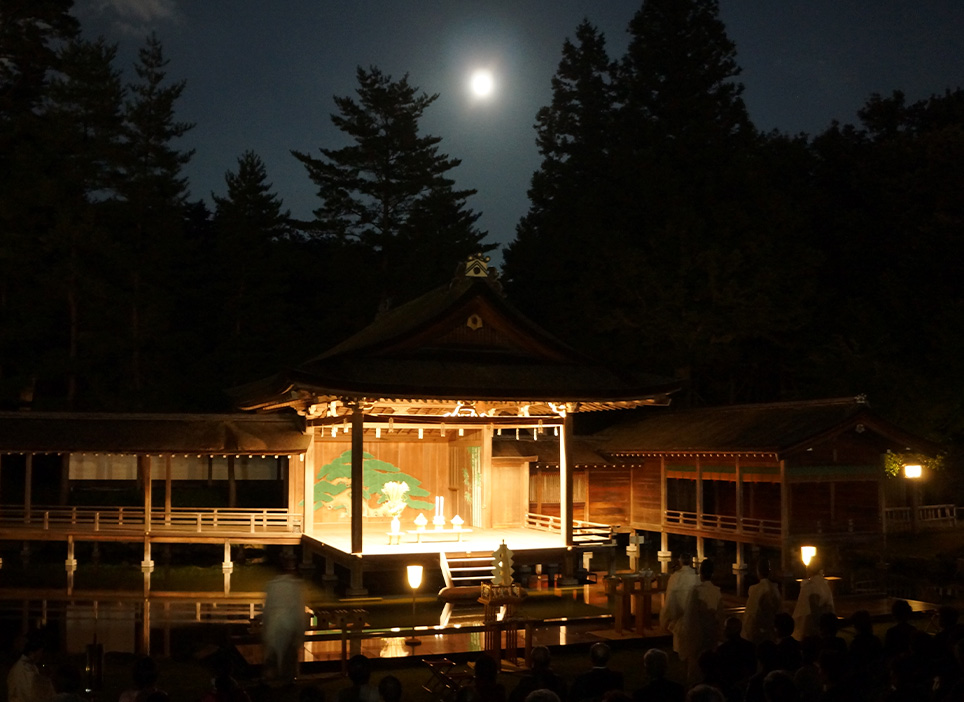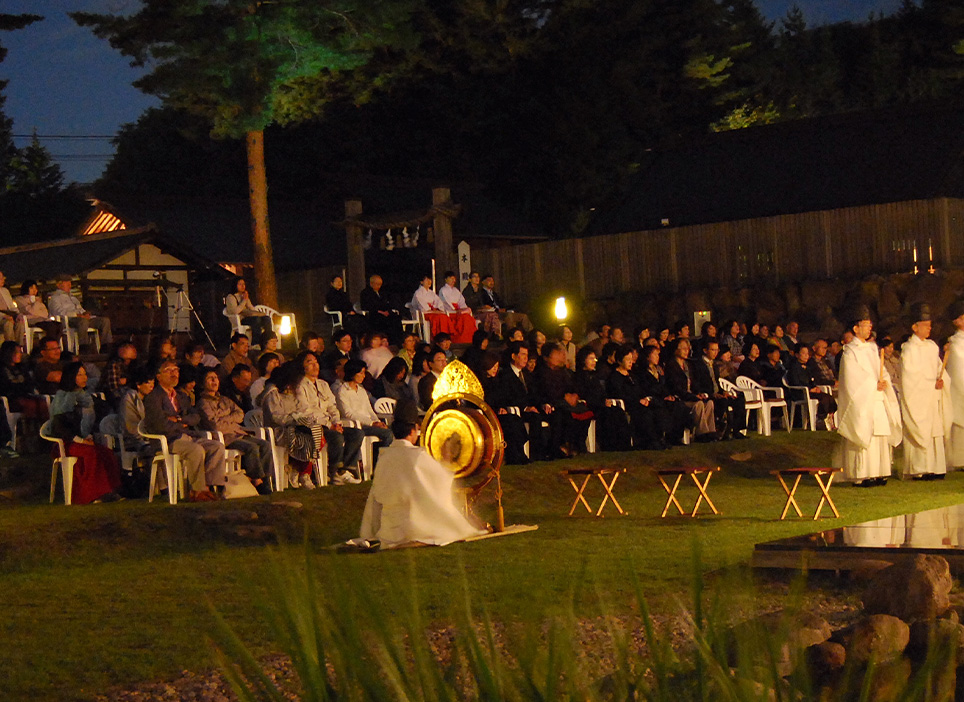The custom of mid-autumn moon viewing arrived from China during the Heian period (794-1185). It was mainly celebrated by aristocratic society such as the Imperial Court.
The 15th day of the eighth lunar month (middle to late September) is the day of the “Mid-Autumn Moon.” It is also known as “Imo Meigetsu” because potatoes were offered to the moon on this day.
Since the modern Gregorian calendar is a solar rather than a lunar calendar, the date of the mid-autumn full moon moves each year. We hold the Mid-Autumn Moon Festival on the 15th of the 8th lunar month.
Our Moon Festival is based on the tradition of worshipping the sun and moon gods which was handed down by the guardians of the Shinto faith. In ancient times, sun deity worship was performed on the vernal equinox (March equinox) and moon deity worship on the autumn equinox (September equinox).
The moon is considered to be an incarnation of the moon deity. The name of the moon deity, Tsukiyomi no Mikoto, is chanted during the ceremony. There are 365 days in a year, so the chanting is normally done 365 times. However, the chanting in our moon viewing festival is done 10 times for each of the 12 months, or 120 times in total.
We know that there is a gravitational pull between the earth and the moon, making ocean tides rise and fall. It is also held that more births occur on full moons, although there is actually no evidence to support this theory. Our lives are made possible thanks to such unseen forces, so it is important to accept these blessings with a grateful heart each and every day.

The Moon Festival at Misogi Shrine is an opportunity for us to reflect on the blessings of the moon deity, and in turn, the blessings of heaven and earth.
Why don’t we chant, “Tsukiyomi no Mikoto,” “Tsukiyomi no Mikoto,”… together?
“God increases his majesty through our veneration, and man is blessed by the virtue of God.” These words teach the importance of respecting and honoring God and are found in the first article of the Goseibai Shikimoku (Japan’s first code of warrior law).
After the festival, we have a Naorai (communion ceremony), where we eat Dango (sweet confections) while admiring the moon above the Noh theater.

If you wish to attend, please call in advance.
Phone number: 0551-36-3000 Hours: 9:00 a.m. to 5:00 p.m.



